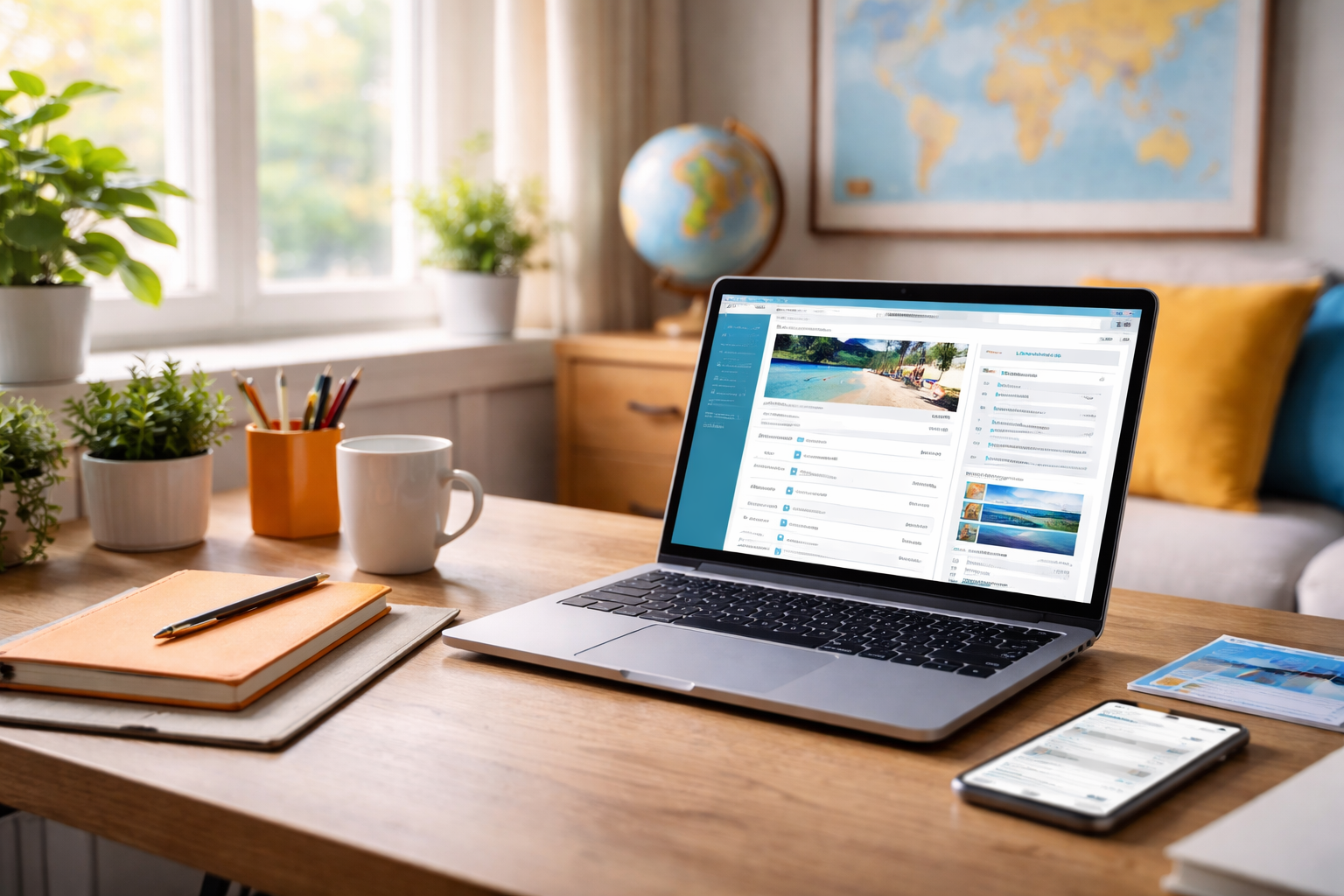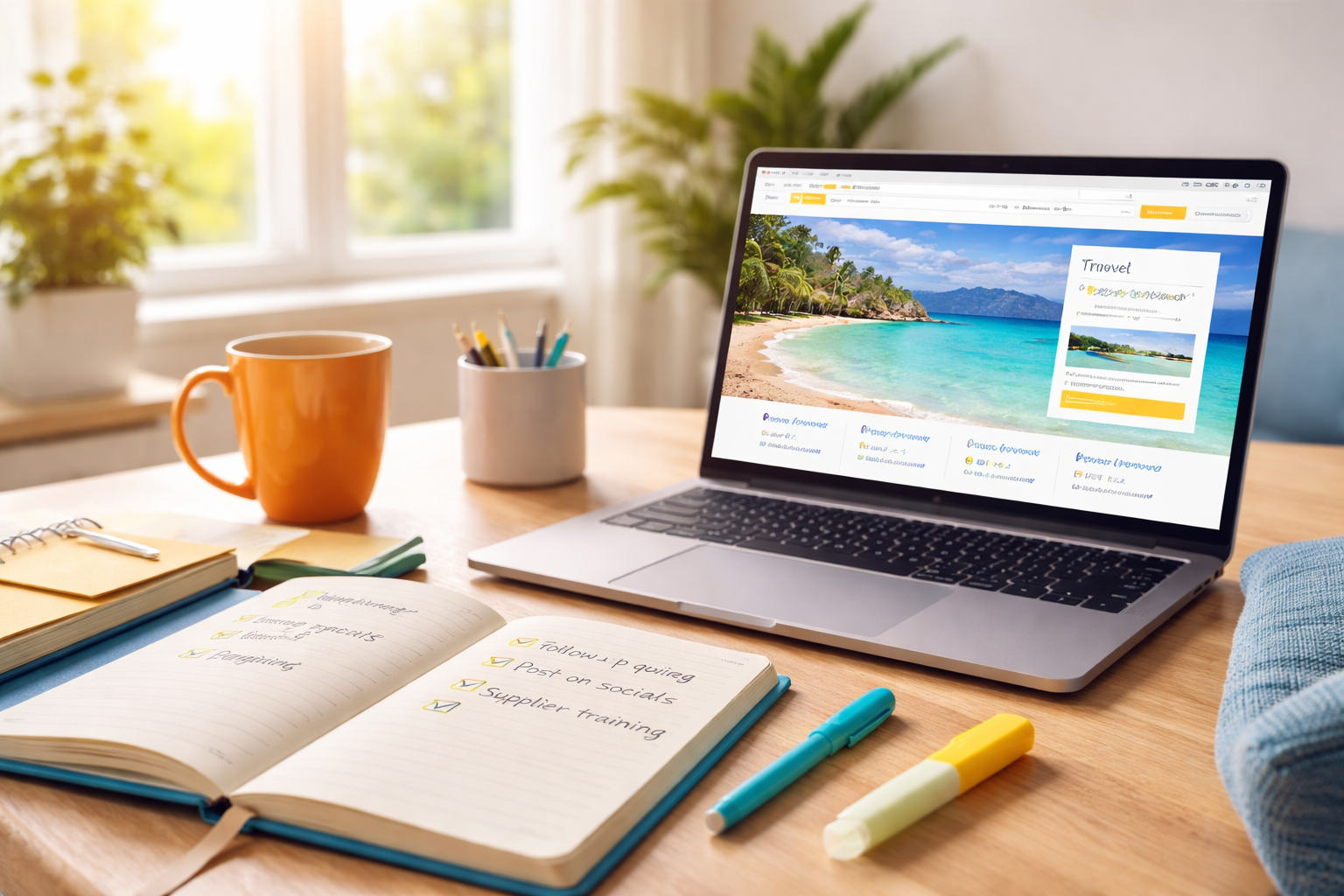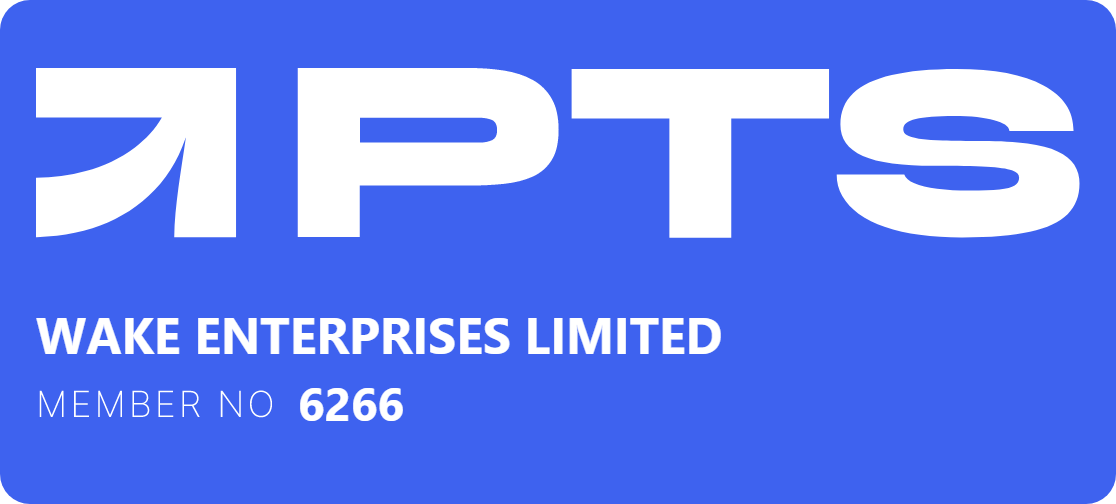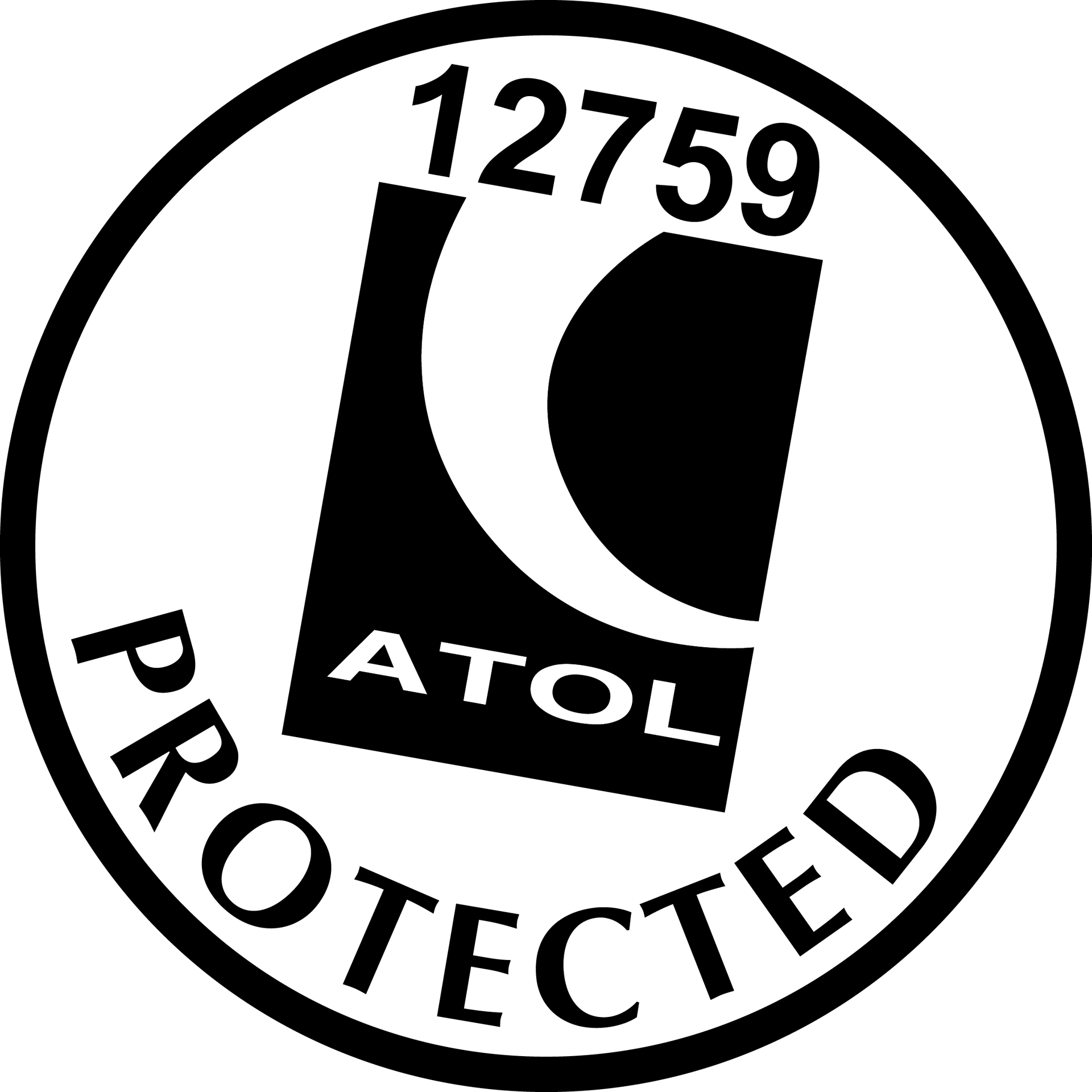How Much Does It Really Cost to Start as a Travel Homeworker?
How Much Does It Really Cost to Start as a Travel Homeworker?
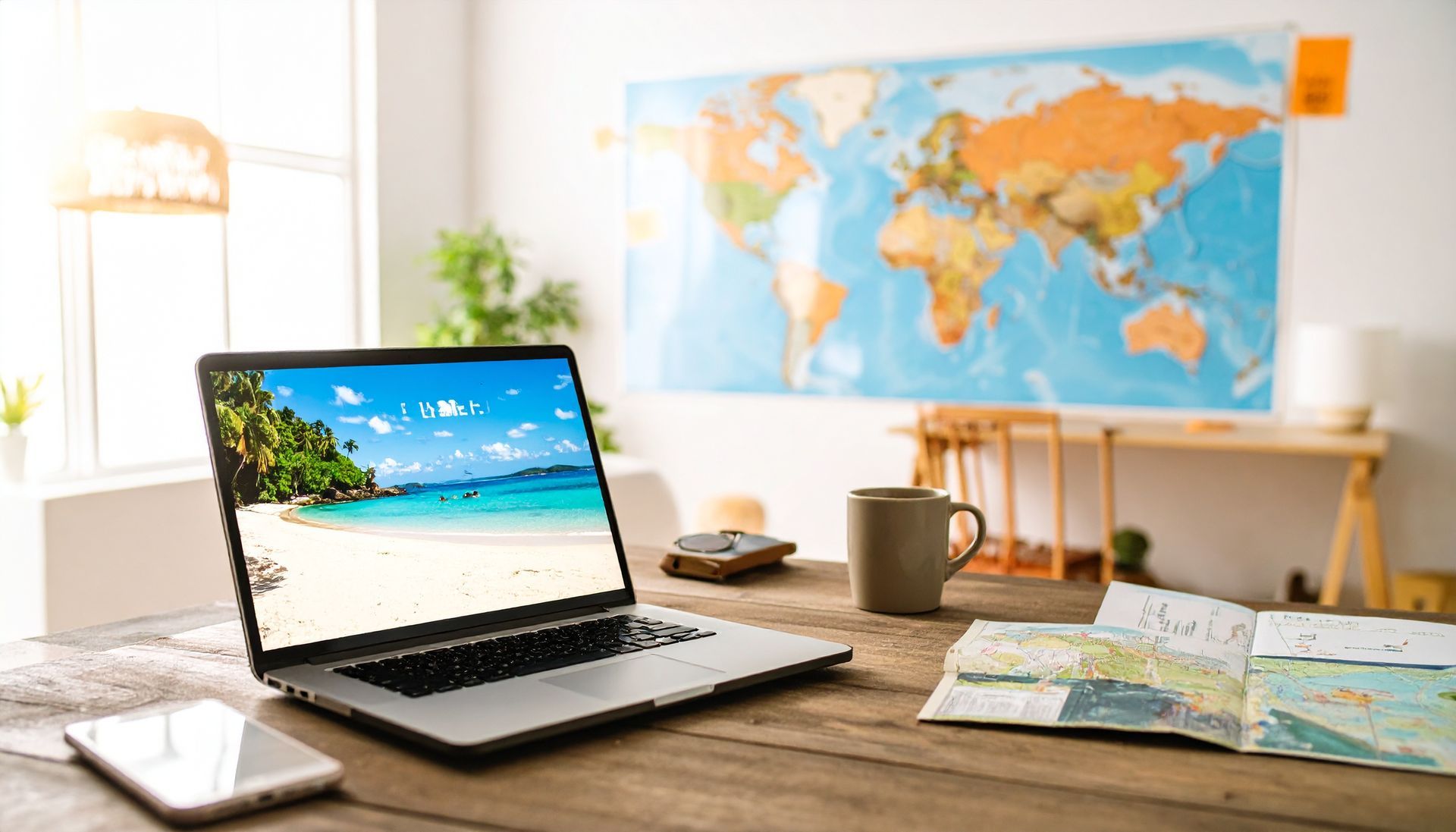
If you’ve been researching the idea of becoming a home-based travel agent, one of the first questions you’ve probably asked is: “What are the actual costs to get started?” It’s a fair question — especially in a world full of bold promises, hidden fees, and glossy sales pitches. The reality is that travel homeworking startup costs can vary dramatically depending on your chosen model, the level of support you receive, and the professional standards you want to meet from day one.
In this guide, we’ll strip away the fluff and give you a realistic, UK-focused breakdown of what to expect — from the initial setup to the ongoing expenses you’ll need to budget for. And because we believe in honesty and transparency, we’ll also talk about ways to keep costs manageable without cutting corners.
Why the Real Cost Matters
Starting your own travel business from home isn’t just about passion for travel — it’s a commercial venture. That means your decisions today directly affect your profitability tomorrow. Underestimating your initial spend could slow your growth, but overspending in the wrong areas could drain your budget before you’ve even booked your first client.
By understanding the true travel homeworking startup costs, you can start your new venture with confidence, clarity, and a solid plan for long-term success.
The Initial Setup: Your First Business Investment
These are the costs you’ll face before you even begin taking bookings. Some are unavoidable, while others will depend on the quality of service and support you choose.
1. Your Home Office Environment
A comfortable, efficient workspace is more than a nice-to-have — it’s the foundation of your daily productivity.
Typical costs include:
- Laptop or desktop computer (with fast processing to handle booking systems and multiple tabs without lag): £500–£1,200
- Reliable high-speed broadband: £25–£50/month
- Dedicated desk and ergonomic chair: £150–£400
- Basic accessories (mouse, headset, printer): £50–£200
While you can cut costs by using existing equipment, investing in reliable tech from day one will save you time and frustration later.
2. Professional Identity & Branding
Even if you join a travel network, you’ll still need a professional presence.
Costs may include:
- Domain name & professional email address: £15–£30/year
- Basic website or profile page setup: Free to £200 (depending on hosting and templates)
- Branding & logo design: £0–£300
The Independent Travel Consultants, for example, provide web hosting (you supply the domain name) as part of the package, which can significantly reduce your outlay.
3. Licensing, Accreditation & Protection
If you operate under your own brand, you’ll need to ensure your business complies with UK travel industry regulations. This could include:
- ATOL bonding
- ABTA membership
- Protected Trust Services (PTS) — ensuring clients’ money is 100% financially protected.
Joining a hosted agency or network like The Independent Travel Consultants means you operate under their licensing and bonding, removing these large upfront costs.
Ongoing Costs: The Price of Staying in Business
Once you’ve set up, you’ll need to budget for the ongoing expenses that keep your travel business running smoothly.
4. Monthly Membership Fees
Most UK homeworking models charge a monthly fee (some charge every 28 days), typically ranging from £50 to £300 depending on the level of support, technology, and training included.
This often covers:
- Access to booking platforms and supplier accounts
- Ongoing training and webinars
- Marketing materials and support
- Back-office systems for invoicing, documentation, and reporting
5. Marketing & Lead Generation
Your clients won’t magically appear. You’ll need to invest in attracting them. Costs can include:
- Business cards & printed flyers: £30–£100
- Social media advertising: £50–£500/month depending on your reach goals
- Networking event fees: £10–£50 per event
- Local sponsorships or collaborations: variable
6. Training & Development
Travel is an ever-changing industry, and staying up-to-date is non-negotiable. You may want to budget for:
- Specialist destination or product training courses
- Familiarisation trips (fam trips)
- Industry conferences
Some training is free via suppliers, but advanced courses may cost £50–£500 each.
Hidden Costs to Be Aware Of
Even the most careful planners can miss certain expenses. Here are a few often-overlooked ones:
- Travel to meet clients or attend networking events
- Extra software subscriptions (design tools, video conferencing upgrades)
- Professional insurance (public liability, cyber cover)
- Additional equipment maintenance or replacement
Jamie Says:
"When people ask me about travel homeworking startup costs, I always say this — it’s not about how much you spend, it’s about where you spend it. A fancy desk won’t win you clients, but the right training, tools, and support will. Starting out in travel doesn’t have to be expensive, but it does have to be intentional. Plan your budget like you’d plan a client’s dream holiday — know where every penny is going and make sure it’s helping you get to your destination: a profitable, sustainable travel business."
Reducing Your Startup Costs Without Cutting Quality
There are smart ways to launch without overspending:
- Join a reputable host agency that covers licensing, bonding, and supplier access.
- Use free digital tools for project management, marketing, and communication.
- Leverage your personal network for your first bookings.
- Focus your marketing on one or two channels at first, rather than spreading thin across multiple paid platforms.
Addressing the Critics: Why Newcomers Deserve Their Place in Travel
Some industry veterans claim that new travel homeworkers “flood the market” without adding value. We take a different view. Fresh entrants often bring:
- New perspectives and ideas
- Digital marketing skills that are essential in today’s landscape
- Closer personal connections with their clients
- An eagerness to learn and adapt
Your success isn’t defined by how long you’ve been in the industry — it’s defined by the service you provide, the relationships you build, and your ability to deliver unforgettable travel experiences.
Final Thoughts: Investing in Your Future
Understanding travel homeworking startup costs isn’t about scaring you with numbers — it’s about equipping you to make informed, confident decisions. Whether your initial outlay is £500 or £2,000+, the key is to treat it as an investment in a business that can bring long-term returns.
With the right preparation, realistic budgeting, and the backing of an experienced network, you can start your travel homeworking career on the right foot — without falling for inflated promises or being caught off-guard by hidden fees.
Ready to take the first step towards running your own travel business from home?
Speak to The Independent Travel Consultants today — we’ll help you launch with the right tools, training, and financial protections so you can start selling holidays with confidence from day one.
About Jamie Wake
Jamie is the founder of The Independent Travel Consultants and a passionate advocate for empowering others to succeed in the travel industry through honesty, training, and community. He brings decades of travel experience, a focus on doing things differently, and a strong commitment to supporting UK-based homeworkers.







